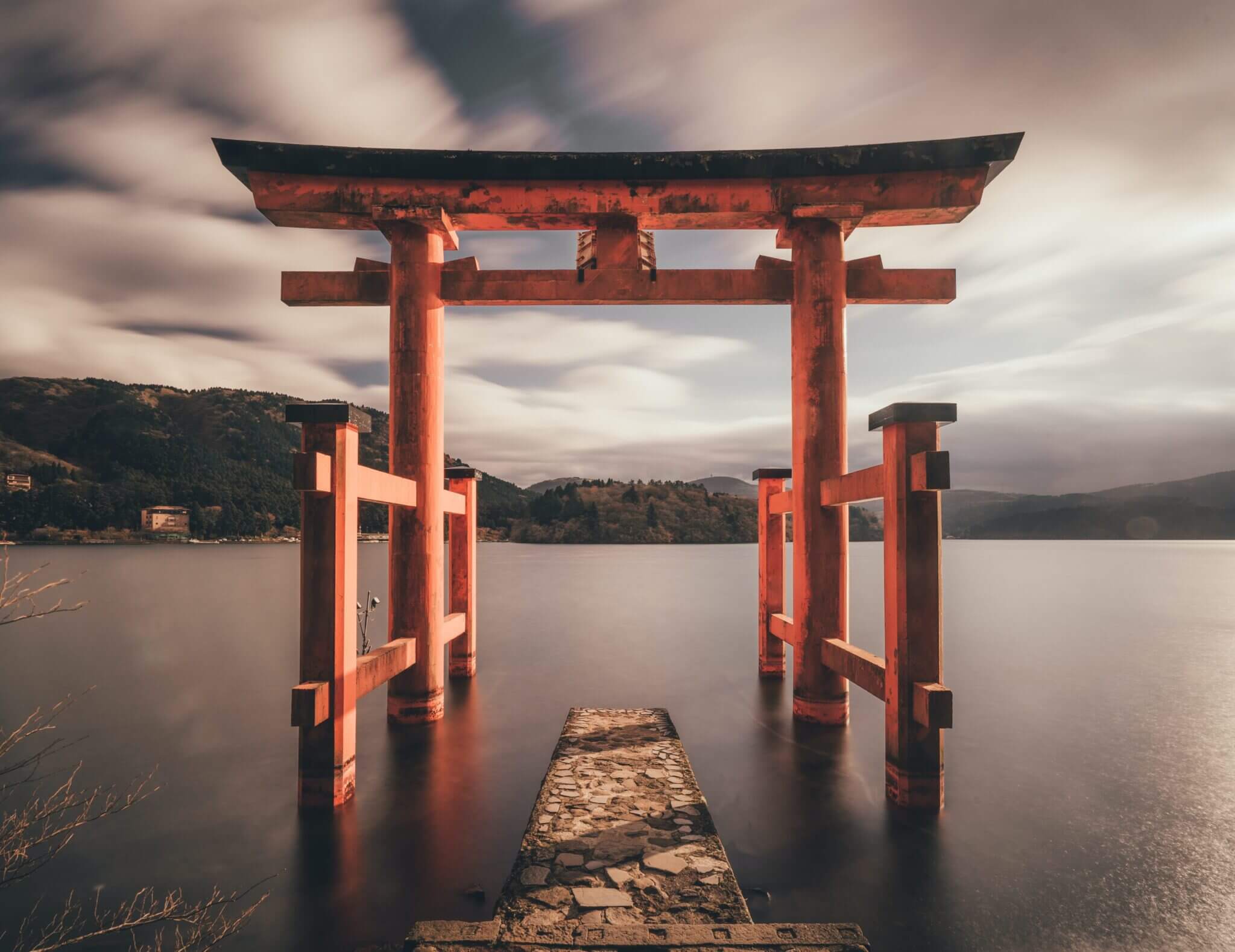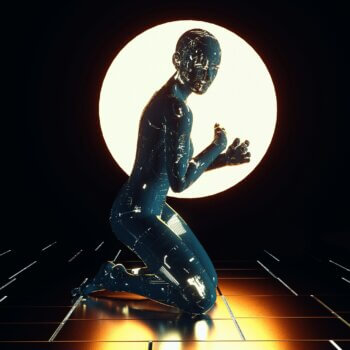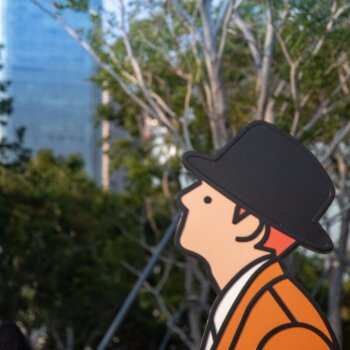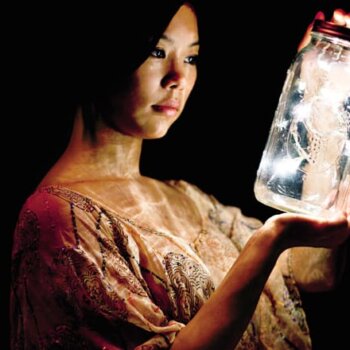After having lived as an isolated feudal society for more than 250 years, Japan opened its doors to the rest of the world when the United States sent Commodore Matthew Perry to Japan to issue a treaty of trade. The Meiji period from 1868 to 1912 led to enormous fundamental changes in Japan’s political, economic, social, and military structure, and made Japan emerge as a modernized nation in the early twentieth century. The Tokugawa shogunate fell, and the Meiji era began with the formation of the new government under the rule of the emperor in 1968. Admitting the European world’s superiority, the leaders of the Meiji Restoration aimed to strengthen Japan against the Western colonial powers by combining modern developments with their own traditional values. During this rapid transformation era, Japanese people met with plenty of difficulties such as the sense of being lost between the new and the old. Natsume Soseki’s Botchan and Yukichi Fukuzawa’s autobiography are valuable sources to tell the panorama of the complex identity of the modern individual in Japan during this Meiji era.
Written in 1906, Natsume Soseki’s Botchan (“young master” in English) deals with a young man who was born and raised in Tokyo, and takes a job teaching middle school mathematics in a small rural town on the Island of Shikoku. He soon finds himself in trouble because of the students and his colleagues. At that time, Japan was in the middle of a rapid westernization, where modern Western modes of thinking were spreading across the country while traditional Japanese values and way of life were disappearing, especially in big cities like Tokyo. The clash between traditional Japanese values and morals and European intellectualism is one of the novel’s central themes and the source of its humor.

In the novel, Botchan always has a battle between his heart and mind. He often gets confused about the question whether his common sense and morality will be corrupted by the pseudo-intellectual head teacher Red Shirt or whether he will team up with the straight arrows Uranari and Porcupine to battle the shallow elitist culture and its break from tradition and morals that Red Shirt represents. He struggles with his accusers and foes, but at the end, he realizes that morality and honesty cannot beat that new, superficial system. So, at the end, he quits his job and returns to Tokyo and Kiyo he belongs to.
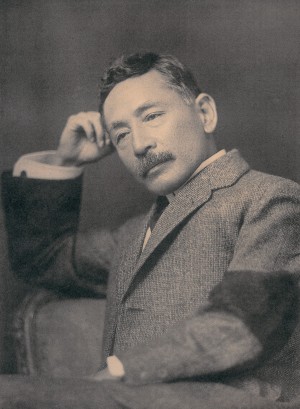
Botchan embodies the difficulties, unhappiness, and alienation that the transition during the Meiji era caused in the Japanese psyche. Japanese people sought a way to protect their own national identity within a modern social order of the Meiji period while pursuing civilization and enlightenment at the same time. Botchan depicts the spiritual dilemma faced by the people who had no choice, but to learn from the West although they hated it.
Natsume Soseki has many parallels with his protagonist Botchan. Soseki was also born into a minor samurai family in Edo (nowadays Tokyo), and he grew up in the period of great changes in Japanese culture and society. With the Meiji Restoration, Soseki’s family lost its former position. In his later life, he worked as a teacher in countryside. Based on all these personal experiences, Soseki illustrates the sufferings and confusion of people during Japan’s rapid modernization and westernization in his realistic novel. Botchan takes a photo of the Meiji era where Japan went through a dramatic transition from the old to the new. Botchan tries to realize his own individual freedom in that new, modern Japanese society, and is shaken up by its difficulty. In his work, Soseki clearly shows his attachment for the pre-modern Edo period while criticizing the superficiality of Japanese society’s hurry to modernize with an ironical language. He disliked jingoists, but he also opposed unquestioning adoption of the West: “It seems to be the fashion these days to imitate uncritically the works of anyone who has made a name for himself in the West… It would be a pity to lose one’s own and one’s country’s special characteristics through too much adoration of the West… I admire our soldiers. With weapons borrowed from the West…”[2] Botchan is a dialogue between the new and the old, the West and Japan that led the Japanese society to identity confusion in the Meiji era: “Soseki… was swept up by the widespread conviction that his homeland was extremely backward in comparison with the West… He was consumed with difficult problems: how to learn Western culture and yet preserve Japanese traditions, how to fuse Japanese and Western ideas, and how to live ethically between the old and the new. His works provided him with a venue for addressing such questions.” [3]
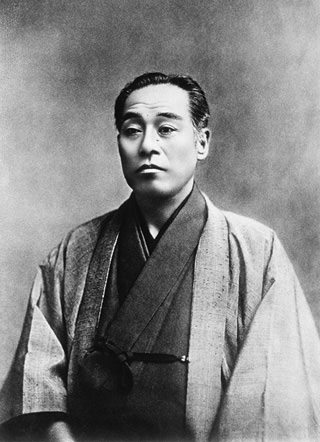
As one of the most significant and influential thinkers of Japan’s modernization period, Yukichi Fukuzawa was born in a poor, low ranking samurai family in 1835. Realizing the importance of independent thought at an early age, Fukuzawa educated himself, learning Dutch first and English later, and so, he could escape the rigidity of thought taught in schools. After Japan opened its ports to the Western world beginning from the year of 1853, he was sent to many trips by the Shogunate, and he wrote his observations there to enlighten Japanese people. He was interested in the social relations, and political and economic institutions in the West rather than its technology and machines because he believed that Japan could develop its own technology with the necessary foundation of knowledge. Therefore, it was crucial for Japan to import knowledge and ideas from the West, and to educate young generations in order to elevate Japanese civilization to the level of the West, or even surpass it.[4] He promoted the principle of national independence through personal independence, which aiming to plant in Japanese people a sense of individual strength to build a strong nation competing with the others. Firmly believing that education is the key for achieving personal independence and strength, Fukuzawa founded the prestigious Keio-gijuku -known as Keio University today- in 1868, the first Japanese university to be independent of the government. Admitting the superiority of Western education, he endeavored to introduce Western ideas to increase Japanese strength and independence to resist Western imperialism. With his books describing Western political, economic and cultural institutions in a clear and simple way, he created a completely new style of writing to emancipate the language from formality and dominance of the elites on the purpose of educating people. Furthermore, Fukuzawa insisted the need to develop an independent intellectual community, and in this direction, he founded Jiji shimpo, one of the most influential newspapers in Japan. By means of the newspaper, Fukuzawa encouraged people to enlighten themselves, and to adopt a moderate attitude towards the social and political changes that Japan was going through at that time. Fukuzawa defended that only an independent and educated Japan could win the respect of the West as a strong country.
Being resentful of the contempt and discrimination because of the class system in Tokugawa Japan, Fukuzawa argued the principle of equality of opportunity. Independence of mind, curiosity, and the treating of all mankind as equal were the fundamental values of western-style education, and this would be very effectual in the fight against inequality.[5] According to him, “the spiritual secret of the strength and wealth of the Western nations lay in the fact that their people were equal and therefore free. It was because the western peoples enjoyed freedom and equal rights and were hence imbued with the spirit of enterprise, initiative and responsibility that the western nations had succeeded in becoming strong, rich and united.”[6] That is why, the Japanese nation needed to learn the “spirit of independence, initiative and responsibility such as characterized a people enjoying freedom and equal rights…”[7] For Fukuzawa, “the civilization refers to the attainment of both material well-being and the elevation of the human spirit.”[8] In other words, the steps towards civilization were the pursuit of knowledge and virtue.
Fukuzawa agreed that there was a trend of Westernization throughout the East, and Japan had to benefit from this civilization as well while developing its national identity and independence. He noted that “the whole world is dominated by Western civilization today, and anyone who opposes it will be ostracized from the human society; a nation, too, will find itself outside the world circle of nations.”[9]
In parallel with the slogan of the Meiji period “Enrich the country, strengthen the military”, Fukuzawa focused on the question how Japan could be both wealthy and militarily strong in short order: “After all, the purpose of my entire work has been… to open this ‘closed’ country of ours and bring it wholly into the light of Western civilization. For only thus may Japan become strong in the arts of both war and peace and take a place in the forefront of the progress of the world.”[10] He was well-aware of the fact that Japan had a long way to catch up the Western civilization, but still he did not give up his great ambition “to form a great nation in this far Orient, which would stand counter to Great Britain of the West, and take an active part in the progress of the whole world.”[11]
Regarded as the foremost expert on Western culture, and referred to as one of the founders of modern Japan, Yukichi Fukuzawa sought to integrate the West and Japan. He tried to get not only the technology, but also the social aspects of Western civilization. He never believed in the total acceptance of all Western things without questioning. On the contrary, he was a patriot, and he criticized many moral and spiritual aspects of the West. He intended to build a new westernized Japan on the legacy of the past, including the Imperial tradition and the ethic of his samurai antecedents.[12]
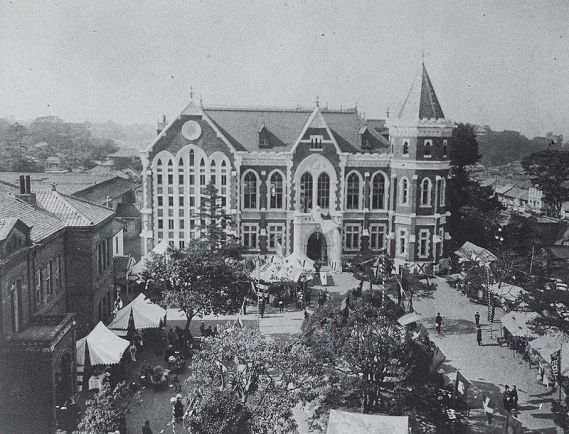
Fukuzawa had a huge influence over Japanese civilization. His principle of individual strength and independence motivated Japanese people to embrace changes, which took place only in a decade in Japan while they had occurred in more than two hundred years in the West.[13] He wrote during a very critical juncture in the Japanese history, when the Japanese people witnessed the fragility of the Togukawa shogunate, and felt uncertainty about their future. Fukuzawa helped his people to understand their situation, and to overcome the sense of being lost and the lack of motivation that the new world caused.
In conclusion, both Natsume Soseki and Yukichi Fukuzawa deal with the issue of complex identity of modern individual in Japan during the Meiji era. It was the time of enormous fundamental changes, which represents a turning point in the Japanese history. In his Botchan, Soseki portrays the waver of the Japanese society between the modern and the traditional, and he shows his longing for the old Japan while Fukuzawa looks for a way to integrate the old and the new in order to build an independent and strong nation against the West. Both authors dwell on the identity confusion the Japanese society faced during the Meiji era. While Soseki focuses more on the loneliness and the sense of being lost that the Japanese people suffered from, Fukuzawa tries to show them how to put out of this misery by keeping pace with the new, modern world without forgetting the old one.
[1] Umeji Sasaki, “Foreword of Botchan”, Botchan, 1968, 7.
[2] Soseki Natsume, Complete Works of Soseki, 1928, 422-23.
[3] Bruce Fleming, “Soseki and his Discontents”, 2001.
[4] Yukichi Fukuzawa, An Outline of a Theory of Civilization, 1973, 2.
[5] Alan Macfarlane, Yukichi Fukuzawa and the Making of the Modern World, 2002, 46.
[6] Carmen Blacker, The Japanese Enlightenment, A Study of the Writings of Fukuzawa Yukichi, 1969, 30.
[7] Ibid, 32.
[8] Yukichi Fukuzawa, An Outline of a Theory of Civilization, 37.
[9] Yukichi Fukuzawa, Fukuzawa Yukichi on Japanese Women, 1988, 79.
[10] Yukichi Fukuzawa, The Autobiography of Yukichi Fukuzawa, 1966, 246-247.
[11] Ibid, 334.
[12] Alan Macfarlane, 53.
[13] Kenneth B. Pyle, “Review: The Autobiography of Yukichi Fukuzawa”, 1968: pp. 182-183.
Bibliography
- Blacker, Carmen, The Japanese Enlightenment, A Study of the Writings of Fukuzawa Yukichi (Cambridge: University Press, 1969).
- Fleming, Bruce, “Soseki and his Discontents”, Michigan Quarterly Review (Summer/2001).
- Fukuzawa, Yukichi, An Outline of a Theory of Civilization(Tokyo: Sophia University, 1973).
- Fukuzawa, Yukichi, Fukuzawa Yukichi on Japanese Women(Tokyo: University of Tokyo Press, 1988).
- Fukuzawa, Yukichi, The Autobiography of Yukichi Fukuzawa (New York: Columbia University Press, 1966).
- Macfarlane, Alan, Yukichi Fukuzawa and the Making of the Modern World (New York: Palgrave, 2002).
- Natsume, Soseki, Botchan, (Penguin Classics, 2012).
- Natsume, Soseki, Complete Works of Soseki (Tokyo: Iwanami Shoten, 1928).
- Pyle, Kenneth B, “Review: The Autobiography of Yukichi Fukuzawa” Journal of Asian History (1968): pp. 182-183.
- Sasaki, Umeji, “Foreword of Botchan”, Botchan (Singapore: Tuttle Publishing, 1968).
